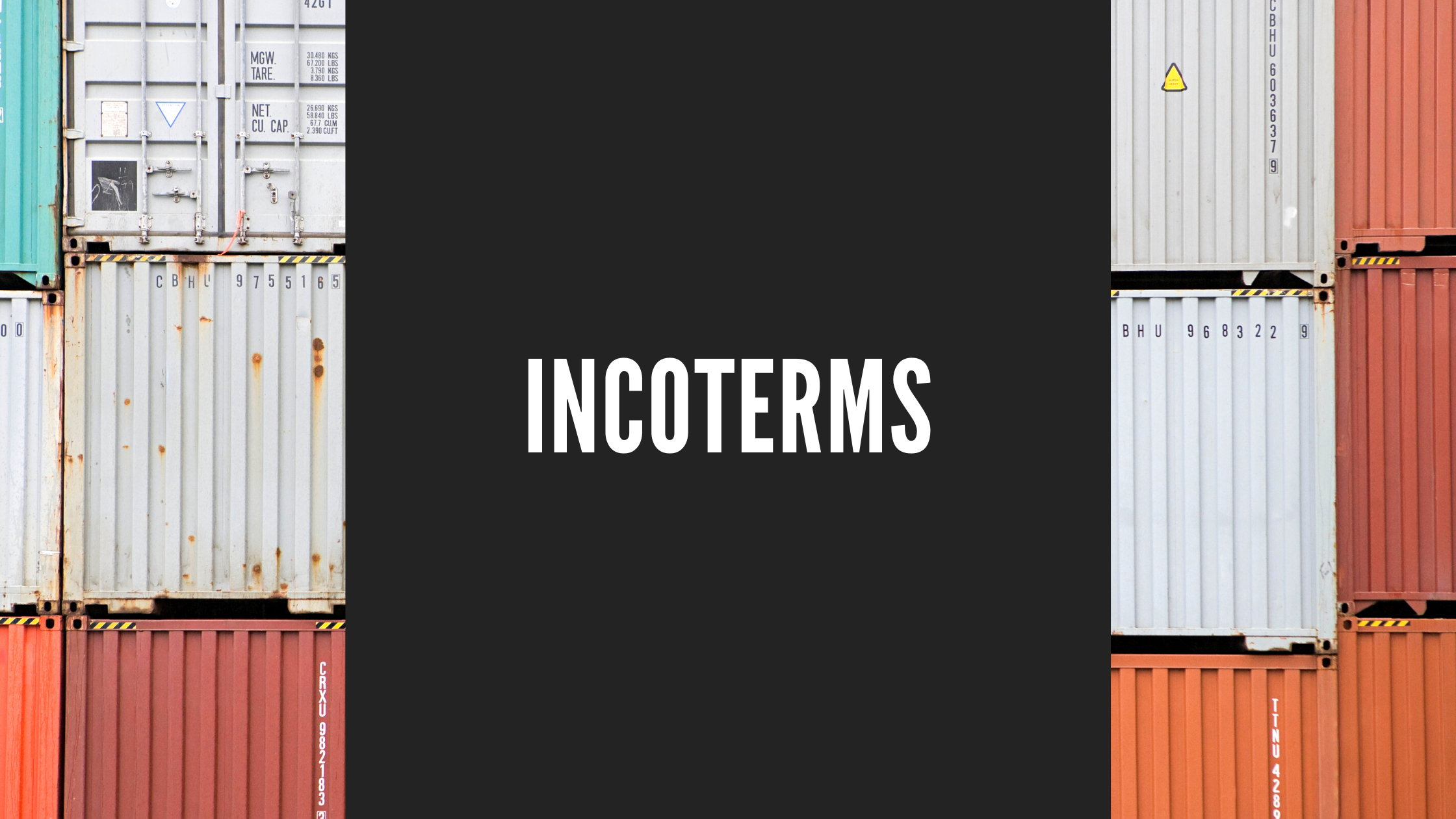Why are Incoterms Important?
The Incoterms rules are the world’s essential terms of trade for the sale of goods. Whether you are filing a purchase order, packaging and labelling a shipment for freight transport, or preparing a certificate of origin at a port, the Incoterms rules are there to guide you.
The Incoterms rules provide specific guidance to individuals participating in the import and export of global trade on a daily basis. They also define who pays which costs for the goods and their transport.
Why are Incoterms Important?
Importers and exporters should consider which incoterms is best for them before the contract of sale is negotiated. This can prevent surprise costs and unnecessary complications.
Choosing an incoterm means getting on the same page as your supplier – it aligns everyone on shipping procedures when multiple parties and stakeholders are involved. These globally accepted terms ensure the timely payment of goods, services, and duties, while protecting suppliers, carriers, and buyers.
The seven Incoterms 2020 rules for any mode(s) of transport are:
-
- EXW – Ex Works:
Ex Works means that the seller delivers when it places the goods at the disposal of the buyer at the seller’s premises or at another named place (i.e., works, factory, warehouse, etc.).
-
- FCA – Free Carrier:
Free Carrier means that the seller delivers the goods to a carrier, or another person nominated by the buyer, at the seller’s premises or another named place. With FCA shipping terms, the parties are well-advised to specify, as clearly as possible, the point within the named place of delivery, as the risk passes to the buyer at that point.
-
- CPT – Carriage Paid to:
It indicated that the seller incurs the risks and costs associated with delivering goods to a carrier to an agreed-upon destination. With multiple carriers, the risks and costs transfer to the buyer upon delivery to the first carrier.
-
- CIP – Carriage and Insurance Paid To:
It means when a seller pays freight and insurance to deliver goods to a seller-appointed party at an agreed-upon location.
-
- DAP – Delivered at Place:
The DAP term in shipping means that the seller delivers when the goods are placed at the disposal of the buyer on the arriving means of transport ready for unloading at the named place of destination. The seller bears all risks involved in bringing the goods to the named place.
-
- DPU – Delivered at Place Unloaded :
Here the seller assumes all costs and risks until the goods are unloaded at the agreed named place at destination. In this case, the buyer is responsible for import customs formalities. DPU can apply to any mode of transport or multiple modes of transport.
-
- DDP – Delivered Duty Paid :
The DDP Incoterm – “Delivered Duty Paid” – means that seller bears all the costs and risks involved in bringing the goods to the place of destination and has an obligation to clear the goods not only for export but also for import, to pay any duty for both export and import and to carry out all customs formalities.
Note: the DPU Incoterms replaces the old DAT, with additional requirements for the seller to unload the goods from the arriving means of transport.
The four Incoterms® 2020 rules for Sea and Inland Waterway Transport are:
-
- FAS – Free Alongside Ship :
The seller clears goods for export and places them alongside the vessel at the named port of departure. The named port of departure location can be a loading dock or a barge, but not a container terminal.
-
- FOB – Free on Board :
The seller delivers the goods on board the vessel nominated by the buyer at the named port of shipment. They are responsible for all costs up until that point. Once the shipment is boarded, the buyer assumes risks and costs.
-
- CFR – Cost and Freight :
The seller must arrange and pay for transporting the cargo to a specified port. The seller is also responsible for delivering the goods, clearing them for export, and loading them onto the transport ship. However, once the shipment is loaded into the vessel, the risk of loss or damage falls to the buyer. This means the seller is not responsible for insuring the cargo during transportation.
-
- CIF – Cost Insurance and Freight :
The seller delivers the goods, cleared for export, onboard the vessel at the pot of the shipment. He also pays for the transport of the goods to the port of destination. Additionally, the seller contracts for insurance cover against the buyer’s risk of loss or damage to the goods during the carriage.
For more details: https://www.trade.gov/know-your-incoterms

